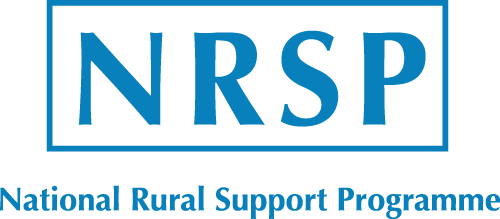The mandate of National Rural Support Program (NRSP) is to alleviate poverty by harnessing people’s potential and undertaking development activities in Pakistan.

The mandate of National Rural Support Program (NRSP) is to alleviate poverty by harnessing people’s potential and undertaking development activities in Pakistan. It is a not-for-profit organisation registered under Section 42 of the Companies Act 2017 (Repealed Companies Ordinance 1984).
National Rural Support (NRS)
It is a national entity whose mandate is to alleviate poverty by harnessing people’s potential and undertaking development activities in Pakistan.
Relying on a province in all four National provinces, NRSP is currently working with more than 3.3 million poor households organised into a network of community organisations in sectors such as microfinance and enterprise development, environmental, gender, and development, as well as infrastructure and technology development.
Punjab Rural Support (PRS)
The Punjab Rural Support Program (PRSP) was incorporated in November 1997 under the Companies Ordinance of 1984 (Re-enacted by the Companies Act, 2017). It was licenced under Section 24. The main objective of the company is to develop rural areas and support and subsidize means of program plans and schemes for rural uplift and socio-economic welfare, including giving credit to marginalized persons.
AGHA KHAN RURAL SUPPORT PROGAMME (AKRSP)
The Agha Khan Rural Support program (AKRSP) is a private, non-profit company established by the Agha Khan Foundation to improve the lives of the people of Gilgit Baltistan and Chitral (GBC). The organization’s overall goal is to improve Northern Pakistan.
Balochistan Rural Support Program (BRSP)
The overall mission is to facilitate the establishment and improvement of sustainable livelihoods for the rural poor in Baluchistan. This is accomplished through the mobilization of poor communities to help them plan and implement their development agenda.
The rural development programs of BRSP have helped communities through community organisations for women’s empowerment, natural resource management, physical infrastructure development, human resource development, enterprise promotion, and credit and sowing projects.
To harness this promotion, BRSP programs organise communities into multi-sector community organisations (COs), which are then used as a platform for planning and implementing various developmental activities by community members themselves.
Analysis of the Skill Development Program
In order to tackle the problem of an insufficiently skilled workforce for Pakistan’s future economic growth, the Sindh skill development project was signed to better equip 50,000 youth in Sindh province with relevant skills to increase their employability.
Employers value skilled hires so that they can save time and money on training new employees, but they have difficulties doing so. After learning about an architecture and interior design course offered at Sindh Technical Education and Vocational Training Authority (STEVTA).
The main challenges in Pakistan are limited access to education and vocational training, the low quality of education and training, and a shortage of skilled labor for the country’s future growth. Access to education and training is still limited.
There’s a wide disparity between men and women, rural and urban, and different regions. Not even 4% of the total population enters higher education, and less than 1% of the population has ever received technical or vocational education.
